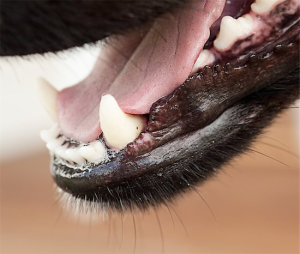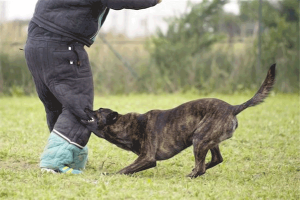 All too often people are drawn in by the cuteness of puppies and undertake the responsibilities of pet ownership without giving adequate thought to what that actually involves. This can be especially true around the holidays. And while that little ball of fluff initially may be met squeals of delight, pet ownership is a lifetime commitment that carries both responsibilities and liabilities.
All too often people are drawn in by the cuteness of puppies and undertake the responsibilities of pet ownership without giving adequate thought to what that actually involves. This can be especially true around the holidays. And while that little ball of fluff initially may be met squeals of delight, pet ownership is a lifetime commitment that carries both responsibilities and liabilities.
Generally speaking, people do not set out to buy or adopt vicious dogs, but all dogs have the potential to bite under the right circumstances. There are roughly four-and-a-half million dog bites reported each year in the U.S., according to the Center for Disease Control, which added that one in every five of those dog bites are serious enough to require medical attention. About 65% of the victims who require emergency medical attention are between the ages of five and nine.(1) The individual responsible for injuries suffered from a dog bite depends in part on where the dog lives and the circumstances surrounding the attack.
New Jersey, like many other states, operates under a strict liability statute concerning dog bites, meaning the dog’s owner is liable for those injuries regardless of whether or not the owner took adequate measures to restrain the dog or warn or protect others of a potential danger. This “strict liability” statute applies only to injuries from dog bites. If a dog were to run into the street causing a person to fall or crash their car, the statute would not apply. The injured person seeking to recover damages would have to file a claim of negligence instead.(2)
When a person is injured by a dog bite in New Jersey, he or she has two years from the date of the attack to file a lawsuit. In order for a victim to seek damages, he or she does not need to prove negligence or carelessness on the part of the dog owner. Victims only need to show that they were bitten; that the person they are seeking damages from is, in fact, the owner of the dog; and that the attack took place while the victim was on public property or lawfully on private property, meaning they were on private property by invitation or in the course of carrying out official duties as allowed by law, such as delivering mail or reading utility meters.(2)
Some states with strict liability statutes allow a provocation defense which releases the dog owner of liability if it is proven that the victim provoked the dog through abuse or teasing. New Jersey, however, does not have such a defense. Essentially, the only defense against liability for dog bite injuries is if the dog owner can prove the victim was illegally trespassing on the dog owner’s private property.(2) Continue reading ›
 Trampolines have long been a favorite form of fun and exercise for children and adults alike. Now with the warmer weather approaching and thoughts turning to outdoor activities, it might be tempting to add this activity to your own backyard. Before you do, however, you may want to consider the risk of injuries trampolines pose.
Trampolines have long been a favorite form of fun and exercise for children and adults alike. Now with the warmer weather approaching and thoughts turning to outdoor activities, it might be tempting to add this activity to your own backyard. Before you do, however, you may want to consider the risk of injuries trampolines pose. New Jersey Injury Lawyers Blog
New Jersey Injury Lawyers Blog











